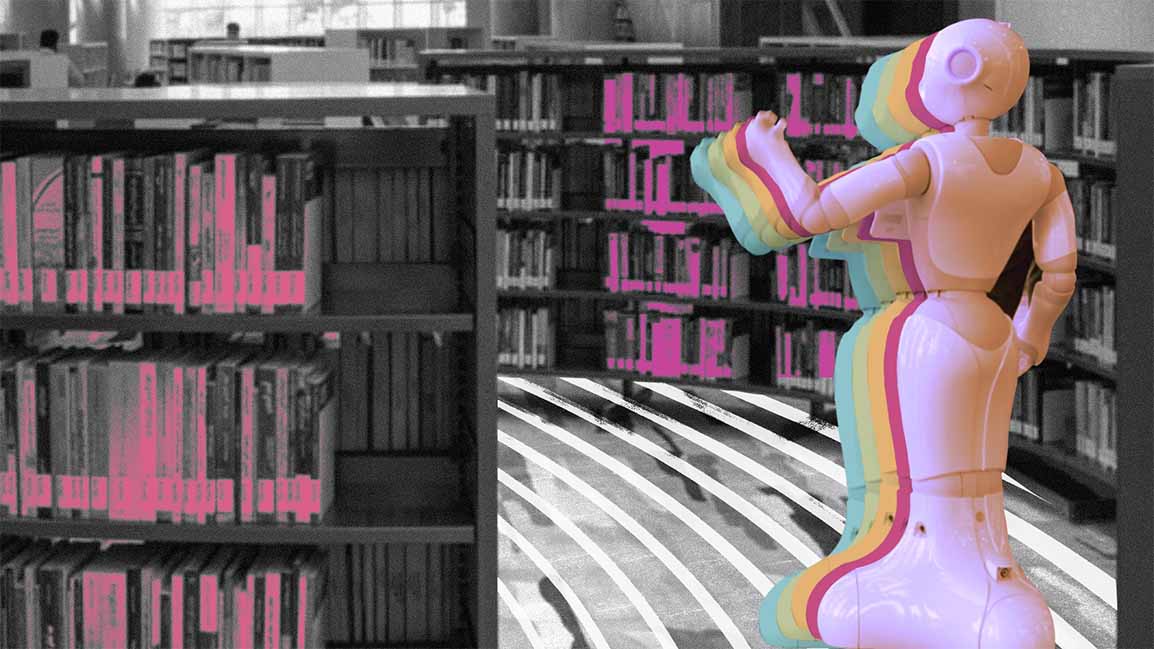- | 4:00 pm
A new library in Dubai is the Middle East’s first to use AI and robots
AI helps to locate a title and signals a robot to deliver the book to the reader.

AI-backed solutions are expected to translate into benefits worth $320 billion for the Middle East in 2030. Autonomous devices are transforming public services from robotic assistants at Dubai’s Electricity and Water Authority to robocops in Umm Al Quwain. Thousands of Arabic texts are also being digitized via collaborations between institutions such as American University in Cairo and NYU Abu Dhabi.
To increase awareness of literature using tech, Dubai’s Mohammed bin Rashid Library has become the Middle East’s first to use AI and robots to help people find books. The library’s first floor is home to an electronic book retrieval and storage system containing one million titles. The first-of-its-kind solution is powered by an algorithm that guides robots to locate literature and deliver it to readers on any of the seven floors.
The process of title selection, reading, and borrowing books will become simpler with AI deployment. It will reduce staff requirements due to the presence of robots on the premises.
Focusing mainly on students, the AI-backed library will contribute to the evolution of the UAE as a hub for culture and innovation in the Middle East. The library will also house a book digitization lab as part of the largest initiative to preserve rare literature. The seven-storied building will also have nine specialized sections, including a young adults library, a children’s library, maps and atlas library, and a library for media and arts.

































